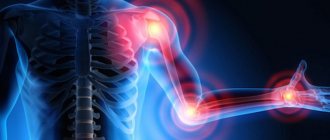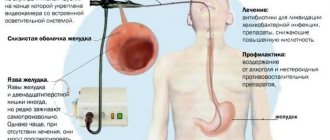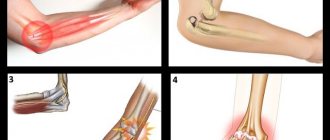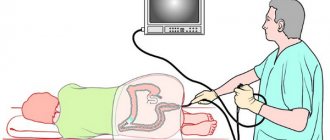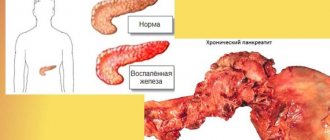Tinnitus is the professional term for ringing, whistling, or similar sounds in the ears and head without an external source. This disease worsens the patient's quality of life, so it should not be underestimated. He may be accompanied by depression, sleep disorders, headaches and similar problems. According to some specialized data, this disorder affects approximately 10–15% of the population. A feeling of “floating” of the environment and nausea are symptoms that occur with dizziness (vertigo). We are talking about the illusion of movement of the body or surrounding objects. This is not a disease, but its manifestation. In approximately 100 diseases, both problems occur simultaneously as accompanying symptoms - tinnitus and dizziness; The cause and treatment of this condition are interrelated and are aimed at eliminating the underlying disease.
Why do I feel dizzy and have my ears ringing?
To answer this question, you should know that there are 2 types of tinnitus: subjective and objective.
Subjective tinnitus - sounds are perceived only by the patient. Those around them cannot hear them, and there is also no measurable external sound source. The reason is ear pathology, in particular, tumor, damage to auditory cells, atherosclerotic changes in the vessels supplying the auditory organ.
Objective tinnitus – the noise is objectively detected by measurement using a special instrument. The cause is spasms of the middle ear muscles, turbulent blood flow, and an aneurysm. Dizziness and noise in the head often occur along with pain (in the left, right ear, diffusely).
Increased blood or intracranial pressure
These are the 2 main reasons why a person begins to feel unwell. Tinnitus occurs when the functioning of the brain is impaired. Such dysfunction can be associated with high intracranial pressure.
Additional symptoms:
- Migraine.
- Nausea.
- Weakness.
- Overwork occurs much faster and a person begins to feel weak and unwell.
- My head is spinning.
The problem may also be high blood pressure. When blood flows unevenly, the nerve endings in the ears become excited and cause noise.
Sudden surges in pressure cannot pass without leaving a trace, which means that a person feels the following symptoms:
- Headache.
- Dull noise in the ears.
- My head is spinning.
- Cramps.
- Fainting state.
- Nausea.
- Vomit.
- Pain in the heart and muscles.
With such pronounced symptoms, you should seek help from a specialist. Elderly people should be especially careful about this.
Such sharp jumps can greatly undermine the fortune. There is a high risk of death in old age when blood pressure exceeds all established standards.
Causes of dizziness and tinnitus
Showing signs of tinnitus and dizziness is not a disease. We are talking about symptoms perceived by a person, such as an unpleasant sound and rotation of the body or environment.
Although it is believed that diseases that cause tinnitus and dizziness are represented by ear infections, this is often not the case. The exact cause of tinnitus (especially chronic) accompanied by vertigo is very difficult to identify; The patient usually has a long journey ahead of him, during which he will need strong nerves - he must not lose determination and faith, at the same time he must ignore the lack of understanding of the problem on the part of family, friends and doctors alike.
Treatment of manifestations of VSD in Moscow
In Moscow, VSD therapy is successfully performed at the Yusupov Hospital. Since VSD is more often a manifestation of some disorder in the physical or psychological state of a person, the pathology requires careful diagnosis. The modern equipment of the Yusupov Hospital allows for examinations of any complexity, which contributes to a quick and accurate diagnosis. Based on the examination data, the doctor (therapist, neurologist or other specialist) creates the most effective therapy that will eliminate unpleasant symptoms and cure the true cause of the pathology.
You can make an appointment with the clinic’s specialists by calling the Yusupov Hospital.
Author
Alexey Markovich Moskvin
Possible diseases
It is generally believed that most cases of tinnitus arise from otologic causes. Often the problem is accompanied by hearing impairment, visual impairment caused by a disorder of sensory cells and/or the auditory nerve that conducts auditory impulses. In these cases, sensorineural deafness is referred to.
The second most common cause of dizziness and tinnitus is diseases associated with the cardiac and vascular system, usually characterized by the occurrence of atherosclerosis. About 25% of hypertensive patients have noise in the ear and feel dizzy.
ENT diseases
The main causes (and treatment) of tinnitus and dizziness are associated with ENT diseases:
- cerumen blockage, foreign body in the external ear canal;
- bone growth in the canal – exostosis;
- violation of the eardrum;
- medial inflammation of the ear (mesotitis) - especially chronic inflammation with cholesteatoma (non-inflammatory tumor);
- labyrinthitis;
- obstruction of the auditory tube, which runs from the middle ear to the nasopharynx, balancing the pressure in the middle ear necessary for the normal movement of the eardrum and auditory ossicles;
- senile deafness or presbycusis - in the process of aging, hearing gradually decreases, especially at high frequencies;
- occupational hearing loss – hearing damage due to excessive noise and vibration in hazardous workplaces;
- Meniere's disease is a disease caused by fluid imbalance, usually excessive blood pressure; symptoms include dizziness, tinnitus, nausea, weakness, subsequent hearing disorders (if such symptoms are caused by another disease, for example, spinal pathology, endocrine disorders, we are talking about Meniere's syndrome);
- otosclerosis is a disease characterized by changes in the bone parts of the middle ear (fixation and immobility), sometimes - the inner ear, and their damage.
Drug treatment of a pathological condition
If there is noise in the head and at the same time there is swelling of a light yellow hue under the eyes, the iridescent contour of the eyes is bordered by a light gray thin arc, then the cause of the discomfort lies in atherosclerosis. A specialist will tell you what to do, but the main recommendation is the same - take drugs such as “Atheroblock”, “Vitrum Cardio Omega 3”.
DETAILS: First aid for bleeding. Types of bleeding and ways to stop it. Help with venous, arterial and capillary bleeding
| Name of medicine | Characteristics, application, treatment |
| "Vinpocetine" ("Cavinton") | Used for chronic, acute stages of cerebrovascular accident. With prolonged use of the medicine (tablets), blood circulation and metabolism are restored, and blood pressure decreases slightly. For intensive therapy, injections are used. The duration of treatment is 14 days. |
| "Piracetam" ("Nootropil", medicine "Lucetam") | A fairly effective remedy that allows you to restore blood circulation and improve memory. Your doctor will tell you how to remove noise in your head using this medication. You cannot use the drug without the recommendation of a specialist, as it has many side effects. Main contraindications:
The medicine can be used both in the form of capsules and tablets, a solution for intramuscular (intravenous) administration. |
| Multivitamin complex | Vitamins and multivitamins contribute to the rapid restoration of immunity and improve the general condition of the patient. For severe headaches and constant noise, vitamins B, E and element A are indicated: such elements reduce nervous tension and strengthen the nervous system. |
| The drug "Vazobral" | The drug is used in psychotherapeutic practice and neurology to strengthen the vascular system. The drug restores blood circulation to the brain, increases mental activity of the brain, attention and memory, and helps improve spatial coordination. |
If extraneous noises or sounds appear with increased pressure, it is necessary to take medications that lower vascular tone. Discomfort can be caused by excessive accumulation of wax in the ears - it is recommended to consult a specialist to clear the ear canal of wax plugs. Most medications can also cause pathology.
Other reasons
There are many more serious problems associated with discomfort. As in the above cases, the causes and treatment of these diseases are interconnected. To get rid of tinnitus and dizziness, the underlying disease should be treated.
Tumors
The most dangerous cause is tumors, in particular, tumor of the 8th nerve.
Benign tumors of the cervical spine and head also cause unpleasant symptoms:
- paraganglioma (chemodectoma);
- meningioma;
- temporal bone tumors;
- less often – malignant tumors and their distant metastases.
Multiple sclerosis
This is an autoimmune disease, the characteristic features of which are:
- lack of coordination;
- loss of spatial orientation;
- weakness;
- numbness in the limbs;
- noise in the head and ears.
Depression and neuroses
Ear sounds and vertigo are present in somatoform (psychogenic) diseases. These are mental disorders manifested by physical (somatic) symptoms without organ failure (without an organic cause). Their appearance may be associated with a stressful event. Such reasons include:
- stress;
- anxiety;
- depression;
- anxiety.
Some medications
Medicinal list of drugs, long-term use of which can cause discomfort:
- Aspirin;
- NSAIDs;
- aminoglycosides;
- quinine.
Types and reasons
How patients describe noises
Before visiting a specialist, the patient needs to decide what kind of noise is bothering him:
- Monotonous noise - hissing, whistling, hum, wheezing, clear ringing.
Ask your question to a neurologist for free Irina Martynova. Graduated from Voronezh State Medical University named after. N.N. Burdenko. Clinical resident and neurologist of the Moscow Polyclinic. Ask a question{amp}gt;{amp}gt;
- Complex noise - dull ringing, extraneous voices, musical motifs. Such noises can be considered a consequence of drug overdose, mental disorders, or sound hallucinations.
Tinnitus is divided into:
- subjective, which is heard exclusively by the patient;
- objective, which can be heard both by the patient himself and by strangers.
Symptomatic features
As mentioned above, tinnitus manifests itself as noise, ringing in the ears. Their sound frequency is usually in the range of 125–16000 Hz, with an intensity of about 5–15 dB. Some people also describe the sounds as a combination of tones accompanied by banging and scratching sounds. Tinnitus combined with vertigo is perceived very individually. You may also experience a sore throat.
Important! Sounds do not come from the external environment, but arise inside the ear, in the nerve cords, and in the brain.
As a rule, the noise is relatively mild and only annoys a person if they concentrate on it. In very serious cases, however, the sounds can be unbearable and the patient may suffer from depression and suicidal tendencies. Such conditions require medical attention, sometimes surgery.
Tinnitus can occur acutely when a person experiences acute attacks. If the condition persists for more than 6 months, we are talking about a chronic form.
The following symptoms require medical advice:
- sharp pain that does not respond to painkillers;
- elevated temperature;
- dizziness;
- confusion;
- hearing impairment or loss;
- vomiting, nausea;
- numbness, weakness in one or more limbs.
How to get rid of noise in your head
Main reasons
Does a person complain of a hum, ringing, or a feeling of crashing waves in the head? Perhaps the discomfort arose due to the fact that the patient simply did not get enough sleep and was tired. Is noise in the head dangerous? The appearance of this symptom cannot be considered normal, since many diseases are accompanied by subjective sounds that only the patient hears.
If a person experiences noise, ringing, or buzzing in his head, he can get rid of the discomfort by pinpointing the causes of the sound. Experts identify several provoking factors:
- Toxic damage to the body. Due to food or drug poisoning.
- Physical fatigue. After sports activities, hard work.
- Mental, emotional stress. People who are prone to neuroses and suffer from depression often complain about noises.
- Trauma to the skull, concussion. Unpleasant sensations after a blow may not go away for weeks and intensify after physical activity.
- Taking medications. Discomfort appears with long-term use of aspirin, citramone, and some antibiotics.
- Age-related changes. If there is noise in the head, there are various reasons for older people: wear of the ossicles of the hearing aid, problems with blood vessels, high blood pressure.
- Drinking coffee, chocolate.
- Smoking. Smokers may complain of noise in the head. A pulsating noise appears if a person gives up smoking for a long time and then takes up a cigarette again. This may also cause dizziness and a feeling of nausea.
Patients can describe the nature of the noise in different ways: ringing, hum, pulsation, uniform rustling. Depending on the cause of discomfort, the intensity of the sound changes; the noise can be constant or occur after certain loads. Most often, noise in the head indicates the development of a certain disease.
Diagnostic methods, criteria for determining diagnosis
Patients with tinnitus and dizziness should undergo several tests:
- detailed audiological examination (recording of the hearing curve);
- objective hearing test (BERA);
- testing the balance system (even if there is no dizziness);
- imaging studies (CT, MRI).
Further, according to specific needs, the following examinations are carried out:
- neurological;
- ocular;
- psychiatric.
After determining the cause, excluding a disorder in the auditory organ that requires surgery or other intervention (irradiation of a nerve tumor with a gamma knife), a decision is made to prescribe medications for vertigo and tinnitus.
Nausea, weakness, dizziness, drowsiness occur: reasons for feeling unwell
Dizziness with nausea and tinnitus causes severe discomfort to any person. Efficiency and vital activity are reduced significantly. Neglecting your health can lead to serious illnesses. It is worth attaching importance to any symptom.
Symptoms
Nausea, tinnitus and dizziness are accompanied by a number of symptoms that cause causes of even more unpleasant conditions. The noise can appear at any time of the day and be of different types. If we turn to medical terminology, it would be more correct to say not tinnitus, but tinnitus. It can be periodic, constant, sharp or muted.
https://www.youtube.com/watch?v=gR1DU-lerZY
Discomfort in the ears also manifests itself as congestion. During the day, when a person is at work, tinnitus is not felt as much. It brings severe discomfort at night. Constant noise and ringing make it difficult to relax and sleep. Prolonged discomfort can lead to decreased hearing of the patient.
Along with tinnitus, sudden dizziness occurs, disorienting the person. Against this background, weakness, headache, and irritability appear.
Causes of the condition accompanied by noise and dizziness:
- Ringing in the ears, headaches and nausea accompanied by vomiting are symptoms of hypertension. In addition to the listed symptoms, the main one is high blood pressure.
- Atherosclerosis is characterized by the formation of plaques on the walls of blood vessels that slow down blood flow, which negatively affects the body. This is where the constant noise and ringing in the ears arises. Atherosclerosis is diagnosed not only in grandparents, as they began to believe. This disease is also detected in young people.
- Concussions and other traumatic brain injuries of varying severity may be accompanied by dizziness and noise.
- Loud noise can occur with tumors in the head or subsequent development of neurosis.
- Noise and a symptom of vertigo after rising from a sitting or lying position are caused by compression of blood vessels due to osteochondrosis. Pronounced symptoms include nausea, blurred vision and blurred gait. The human brain does not receive enough oxygen and nutrients, which leads to unpleasant symptoms.
- The appearance of noise, nausea, suffocation, dizziness and a feeling of weakness are noted with vegetative-vascular dystonia.
- Hearing impairment in the form of ringing and noise manifests itself with sulfur plugs. This problem is easy to get rid of, which quickly eliminates the symptoms.
- Tinnitus in the case of Meniere's disease occurs because fluid accumulates in the ear. The hearing organ is compressed and hearing deteriorates.
- The vestibular apparatus is an organ whose disturbances lead to dizziness, nausea, noise, and possible vomiting.
- Vascular crisis is characterized by nausea and weakness, as well as tinnitus.
These are not all the causes of unpleasant symptoms. Blocked ears, weakness, sometimes nausea, dizziness with chronic otitis media and infectious diseases, depressive disorder.
The presented symptoms in rare cases are a consequence of taking medications. If the dose is exceeded or personal intolerance to the drug, these symptoms may occur. These symptoms are similar to side effects caused by drugs.
If symptoms do not go away for a long time, you should consult a doctor to prescribe treatment. To prescribe an effective method, it is necessary to find out the cause of the disease.
Diagnosis occurs through the following methods:
- First of all, the patient is sent for an X-ray of the skull and neck, which excludes or confirms the presence of a foreign body in the ear canal.
- To determine a person’s hearing level, he is asked to undergo audiometry. This method tests sensitivity to sounds familiar to the patient.
- Magnetic resonance imaging is prescribed for suspected tumors in the head.
- Otoscopy is a common diagnostic method that involves examining the inner ear using a special instrument.
A system consisting of a number of diagnostic methods will allow you to exclude possible diseases and make a correct diagnosis.
Troubleshooting
You can get rid of unpleasant symptoms only through a competent approach to treatment. Self-medication does not always lead to a positive effect. Even if the symptoms are eliminated, it is worth maintaining the condition by taking preventive actions.
Weakness, tinnitus, dizziness are sensations that cause a person a lot of inconvenience, reduce the quality of life, and lead to a decrease in performance. The noise can occur in one or both ears, be episodic or constant, and increase and decrease when turning the head, bending forward or to the side.
Patients describe their sensations, or rather what they hear, as ringing, humming, hissing. A similar phenomenon can occur only in a lying position, and intensifies in the evenings or in the morning. The noise is barely audible, or is so noticeable that hearing acuity is reduced. Such symptoms are the cause of many social, psychological and emotional problems, especially when the situation is accompanied by hearing loss.
There can be several diseases that can manifest themselves in this way, and in each individual case, treatment requires an individual approach. If you experience pain in the head, weakness and ringing in the ears, you should try to find out the cause of what is happening. Only an experienced doctor, often an otolaryngologist or neurologist, can do this.
Because tinnitus, along with weakness, nausea and dizziness, are not symptoms characteristic of any specific disease, problems should be looked for in various areas. Even a healthy person, under certain circumstances, may experience unpleasant sensations similar to those described above.
If nausea, weakness, dizziness, drowsiness are observed, the reasons may be different. These symptoms are present in acute and chronic illnesses and indicate significant health problems.
To maintain health, any person must adhere to the rules of a healthy lifestyle. If a symptom appears for the first time and it recurs systematically, you should consult a doctor to find out the cause and timely treatment. Dizziness, tinnitus, nausea, and weakness are serious symptoms that require qualified medical examination to make an accurate diagnosis. The sooner a patient seeks qualified medical help, the better and faster the treatment.
In women, such symptoms are observed during pregnancy. Nausea, dizziness, weakness indicate that conception has occurred and become the first symptoms by which a woman learns that a new life is developing inside her.
Many of us are familiar with sensations such as nausea, weakness and dizziness. These symptoms accompany many diseases. Doctors identify more than eighty ailments that are accompanied by such manifestations. Diseases of the vestibular apparatus, cardiovascular system, cerebrovascular accidents, osteochondrosis, anemia, poisoning and intoxication due to infectious diseases are not all the causes of dizziness and nausea.
To eliminate these unpleasant symptoms, it is extremely important to know the cause of their appearance, and in our article we will try to introduce the reader to the most common diseases and body conditions that can provoke them.
It is much easier for a doctor to identify a disease when its symptoms are expressed quite clearly in the form of pain in a specific organ or the body’s immune response.
But what should those patients do who regularly experience nausea, dizziness, weakness, drowsiness - the reasons for this can be very different.
Dizziness is a condition in which a person feels false movement and rotation of objects or his own body. This condition is usually accompanied by nausea and vomiting.
Nausea, dizziness and weakness are symptoms that occur after severe physical and mental stress. If such symptoms bother you often, then this is most likely a sign of some kind of disease. You should consult a doctor as soon as possible.
Nausea, dizziness and weakness are symptoms that can indicate both illness and simple fatigue. There is a large list of diseases that can cause nausea, dizziness and weakness. These symptoms may occur individually or all at once.
If dizziness, nausea and weakness are episodic, then some circumstances may be to blame: for example, physical or mental stress, occasional decrease in blood pressure, and others. Often in such cases, it is enough for a person to lie down and rest a little in order to fully recover.
It's very disgusting when you feel bad, and nausea is one of the greatest evils of the universe.
Laurel Hamilton, "Azure Sin"
True dizziness is a condition in which a person feels the movement of surrounding objects or a false sensation of rotation of his own body.
In many cases, true dizziness indicates diseases that are associated with the spatial position control system of the body, especially when the dizziness is accompanied by nausea and vomiting. The body's spatial position system also includes the eyes, sensory receptors in the joints, bones and muscles, and the vestibular apparatus of the inner ear.
True dizziness can be peripheral or central. When the cause of true dizziness is a brain disease, it is called central. If true dizziness occurs when the vestibular nerve or peripheral structures of the vestibular apparatus of the inner ear are damaged, then such dizziness is peripheral.
Note that dizziness does not always indicate a disease. Here are a few circumstances under which dizziness may develop:
- Rotations on carousels or around the axis of the body. In this case, dizziness is an absolutely normal reaction of the body to the impact. After the stimulating effect ceases, such dizziness goes away very quickly.
- Side effects of drugs. Taking certain types of medicine may cause dizziness. Typically, the manufacturer lists dizziness as a possible side effect that this medicine may cause.
- A sharp decrease in glucose levels. With insufficient nutrition, blood glucose levels drop, leading to weakness and dizziness.
- Stress. This is psychogenic dizziness, which is provoked by stress and disturbances in the functioning of the autonomic nervous system. As a rule, in such cases the person also experiences fog, confused thoughts, and even faintness.
Symptoms
Therapeutic approaches for dizziness and tinnitus
It is advisable to avoid loud sounds, caffeine, nicotine, and limit salt intake. If severe discomfort causes significant psychological problems, it is sometimes necessary to treat the disease with a psychologist; less often, psychiatric help is required.
Drugs
Medicines for dizziness and tinnitus:
- A group of drugs is used that cause vasodilation, therefore improving cerebral and ear blood supply (for example, gingo Biloba extracts). Drugs for dizziness and tinnitus of other origins (local anesthetics, contrast agents) are also effective. They are used either as injections or locally in the middle ear.
- Other groups of drugs are B-complex vitamins, nootropics - substances that improve the function of brain cells (Piracetam), drugs that affect muscle tension (Mydocalm), antiepileptic drugs.
- Betahistine is a drug whose main function is to stabilize balance. These are tablets for dizziness, acting by dilating blood vessels in the area of the inner ear and auditory-equilibrium centers.
- The following pills for headaches and vertigo are psychopharmaceuticals (Diazepam, Xanax) prescribed by a psychiatrist.
- Autogenic training and biofeedback (under the guidance of an experienced psychologist) are recommended.
Physiotherapy
For pathology of the cervical spine or injury that causes unpleasant hearing sensations and tinnitus, physical therapy can be effective.
HBO therapy
Hyperbaric oxygen therapy is the next therapeutic option. This is an effective method, especially for acute problems. Treatment is carried out over several sessions. The method consists of inhaling 100% oxygen, reaching the body cells as much as possible, which ensures better blood circulation in the ear.
What can make your head and legs feel wobbly?
Due to the crazy pace of life, patients turn to doctors with complaints of fatigue, a constant feeling of tiredness, periodic feeling of a cotton head and wobbly legs. In most cases, these are symptoms of body overload, and good rest with good sleep helps get rid of unpleasant companions. But situations arise in which such signs indicate the presence of a serious pathology.
Cotton head syndrome, or as it is often called managerial flu, is a manifestation of astheno-neurotic disorders. The syndrome occurs in people aged 20 to 40 years. People who are constantly in contact with people and are subject to psycho-emotional stress (managers, teachers, medical workers, businessmen, drivers, pilots) are susceptible to pathology. There are several causes of cotton head:
- constant stress;
- chronic lack of sleep;
- excessive stress at work (study);
- severe nervous shock.
Various acute and chronic diseases or poisoning can push the process forward. In the initial stage of the disease, patients complain of rapid fatigue and the inability to perform a volume of work that was previously easy. There is irritability, a feeling of fog in the head, and weakness.
Find out at what pressure dizziness occurs and the feeling of “cotton head” appears.
Read why heaviness in the head occurs and how to get rid of it.
Do you know what pathological noises are and why they appear? Read about the causes of the pathology.
If left untreated, symptoms include emotional lability and complaints about heart function. The brain fog is getting worse. Sleep disorders appear. A person cannot fall asleep for a long time, wakes up already tired and with a cotton head.
Loss of appetite, stomach upsets occur. In addition, in both sexes libido decreases, that is, sexual desire decreases, lethargy and apathy appear. Mood decreases, thoughts of suicide may occur.
If you do not consult a doctor and do not prescribe the correct treatment, the condition will be aggravated by mental disorders. The prognosis for the disease is positive if the work and rest schedule is normalized. It is recommended to attend psychotherapy courses.
The cause of weak legs and head is osteochondrosis of the cervical spine. Movements of the neck cause pain, so the patient tries to keep his head in a forced position. This causes the vertebral arteries to be compressed by the affected vertebrae, which impairs the blood supply to the brain (see Cerebral Ischemia). The patient experiences the following symptoms:
- compressive pain in the temples and back of the head;
- ripples and spots before the eyes;
- memory and hearing impairment;
- feeling of weak legs, unsteady walking;
- heavy head;
- dizziness.
Cervical osteochondrosis is dangerous for the development of complications in the brain, so it is important to consult a doctor. Treatment is based on the use of chondroprotectors, massage, analgesics, anti-inflammatory and vitamin preparations. After a course of therapy, the sensation of cotton head disappears, and vision normalizes.
Often, loss of coordination, dizziness, headache and confusion in thoughts occur with arterial hypertension. There are many reasons for sudden changes in pressure:
- stress;
- exercise stress;
- quick transition from horizontal to vertical position;
- diseases of the cardiovascular system;
- weather changes;
- severe fatigue.
With low blood pressure, nausea, tinnitus, and dizziness appear. My legs feel like they're weak and I can't hear them well. Patients complain of a pressing or bursting headache.
In case of arterial hypotension, it is recommended to drink strong tea or coffee and rest. If your blood pressure is high, you need to take antihypertensive drugs prescribed by your cardiologist. Interruptions in blood pressure lead to stroke, heart attack, and encephalopathy.
Find out why a burning sensation occurs in the head: the main causes of the pathology.
There are cases that after a comprehensive diagnosis, the cause of the noise in the head has not been determined, then it is recommended to follow a few simple rules:
- try not to react to hissing;
- give up tobacco products, salt;
- do not drink strong coffee;
- use sedative medications to eliminate nervousness and irritability.
You can try to independently determine the cause of the discomfort. If you constantly have noise and ringing in your head, the patient is advised to cover his ears and listen carefully to himself: if the hissing has disappeared, then he needs to be treated with a hearing aid.
You can cure noise in the head only by eliminating the cause of its occurrence. For osteochondrosis of the neck, excellent prevention is impact on the collar area, as well as therapeutic and preventive exercises, which involve all the muscles of the cervical spine.
It is recommended to independently develop the problem area daily:
- With all fingers, gently massage the area of the collar zone from the base to the skull, slightly pressing the pads on the muscles;
- perform movements in a circle;
- gradually move towards the head.
DETAILS: Instructions for use Magne B6 forte
At the end of the procedure, the muscles will relax, blood circulation will be restored, and the noise will disappear (quite effective treatment).
If the patient is interested in how to treat the pathology on their own, it is recommended to consult a doctor who will tell you about a simple method of therapy:
- the patient should imagine that he has a thin stick between his teeth;
- using it you need to imaginatively draw various numbers.
The appearance of dizziness and noise in the ear is regarded as serious neurological symptoms indicating various diseases. However, the reasons for this condition may also be associated with the subjective feelings of the person himself.
The attending physician will help you figure out why the noise in the head occurs after examining the patient. It is important to note that if neurological symptoms appear, you should always seek professional medical help and never self-medicate.
Main reasons
The reasons why there may be noise in the head can be divided into two large groups: subjective and objective. Subjective sensations cannot be confirmed using any instrumental methods, due to the fact that such a situation is not associated with any diseases and does not require serious treatment.
The objective reasons for constant noise in the head are as follows:
- varying degrees of hearing loss;
- inflammatory diseases of the auditory nerve;
- traumatic injuries to the temporal lobe of the brain or a tumor process of similar localization;
- acute and chronic otitis;
- osteochondrosis of the cervical spine;
- meningitis, encephalitis, sinusitis;
- disturbances in the blood supply to the brain.
All about the causes and treatment of ringing and tinnitus with medications.
Why is my head buzzing? When a symptom indicates a dangerous disease.
The causes and treatment of severe noise in the head are closely related. Therefore, before prescribing any therapy, it is necessary to conduct a qualitative examination of the patient to establish the primary disease causing the symptoms.
Any complaints of unpleasant sounds are an indication for a neurological and instrumental examination. At the same time, the doctor carefully collects the person’s medical and life history and conducts a general clinical and neurological examination. After this, laboratory and other methods are used:
- Clinical analysis of blood and urine can identify various diseases of the body, in particular those associated with inflammatory processes.
- Computer or magnetic resonance imaging is aimed at assessing the condition of the brain and identifying any pathological changes in its structure. Such neuroimaging methods are the most informative, and therefore are most often used in clinical practice.
- Angiographic examination of the cranial arteries is indicated if the vascular origin of the noise is suspected. Angiography allows you to confirm the diagnosis of atherosclerosis of the carotid arteries, as well as identify various types of vascular abnormalities.
- Audiography is aimed at determining the acuity of the auditory analyzer.
An integrated approach to identifying the causes of noise in the head allows you to prescribe effective treatment with drugs and non-drug methods.
Treatment of the disease
Doctors know exactly how to get rid of noise in the head. To do this, first of all, it is necessary to treat the underlying disease, and not just the symptoms themselves. Otherwise, the disease may progress unnoticed by the patient, ultimately leading to severe complications, including complete hearing loss or the development of other unpleasant consequences.
The leading role in the treatment of noise in the head is played by medications that effectively affect diseases and allow them to be cured. The following groups of drugs are most often used in medicine:
- When symptoms appear against the background of neurological diseases, nootropics (Piracetam, Nootropil) are highly effective. Such products improve metabolism in nerve cells, protecting them from damage and death. Treatment is carried out in courses, the duration of which is determined by the doctor.
- For vascular lesions of the brain, high effectiveness is observed with drugs such as Vinpocetine, Actovegin, Cerebrolysin. These medications improve blood supply to the central nervous system, which is especially important in the presence of atherosclerosis of the carotid arteries and other lesions of the arterial bed.
- Antioxidants (Tocopherol, Dihydroquercetin) are good drugs for noise in the head and dizziness, allowing you to protect neurons from any damaging effects.
- All patients are shown multivitamin complexes containing vitamin A, C, and group B. Such supplements improve metabolism in the body, which has a positive effect on the course of the underlying disease.
ethnoscience
The first recipe of traditional medicine is a glass of water with the juice of ½ lemon every morning.
Proven folk remedies
Additionally, you can try the following methods:
- Ginkgo Biloba (contained in the preparations Tanakan, Tebokan, etc.). Regular use of this herb (4-6 weeks) or pharmaceutical products containing it can significantly reduce unpleasant symptoms.
- Acupuncture and hypnosis have a positive effect.
- It is advisable to use Indian head massage.
- Sometimes a light massage of the temples helps.
- It is recommended to enrich the diet with minerals (magnesium, zinc) and vitamins (A, B).
Treatment
To eliminate tinnitus and dizziness, special gymnastics can be used. It will help normalize breathing, reduce the symptoms of the disease, and improve blood circulation in the upper spine and head. These exercises are performed very slowly and smoothly. It is advisable, at least at first, to carry them out together with a specialist.
If breathing and special rehabilitation exercises are performed incorrectly, a deterioration in a person’s condition may occur, including loss of consciousness, headache and increased intensity of symptoms. Also, acupuncture and various types of massage are used to eliminate tinnitus and dizziness.
Drug treatment
In many cases, tinnitus and dizziness require complex therapy using various medications:
- vitamin and mineral complexes that replenish the deficiency of nutrients in the body and improve the general condition of a person;
- tablets and injections to relieve the inflammatory process;
- drugs to normalize a person’s emotional and mental health: sedatives, antidepressants, herbal tablets;
- drugs to lower blood pressure;
- diuretics;
- drugs with a pronounced antibacterial effect;
- immunostimulants.
There are also special medications that help get rid of dizziness and prevent their recurrence. For example, Tanakan, Betaserc, Trental, Vasobral.
Important! Any drug should be taken only after consultation with a doctor and a full examination. Self-medication can do more harm than good, even if you decide to take homeopathic remedies or vitamins.
Folk remedies
Of course, folk medicine also has its own recipes to help cope with tinnitus and dizziness. Today, they are best used as part of complex therapy to relieve symptoms and speed up recovery, rather than as independent treatment. Here are some of the most popular recipes:
- Dill water. This remedy normalizes digestion and blood circulation, has a positive effect on the functioning of the ENT organs and the human immune system, and eliminates dizziness and tinnitus. Dill water can be used at any age. Dill seeds are poured with boiling water and left until the liquid cools to room temperature. It is recommended to take 100 ml of this product, divided into several doses.
- Application of propolis. It can be consumed internally as a tincture or on its own in a small piece. You can also prepare an alcohol tincture from it for instillation into the ears. Remember that propolis, like all bee products, is a strong allergen.
- If tinnitus is caused by hypertension, then to eliminate it you can use a decoction of viburnum, raspberry or their leaves. Drink 100 ml of decoction per day.
- Clover decoction. Pour 250 ml of boiling water over a teaspoon of clover flowers and let it brew for 15 minutes, covered. It is recommended to use the product 15-30 ml 3-4 times a day.
- Fresh juices. Juices freshly prepared from ripe citrus fruits, carrots and beets, apples, pomegranates, cranberries and other natural products increase immunity, saturate the human body with useful substances, improve mood and well-being.
Remember, in any case, if you experience tinnitus and dizziness, you should not delay your visit to the doctor. After all, the sooner the disease is diagnosed and the correct treatment begins, the higher the chances of eliminating it without any complications, for example, loss of hearing and even life.
Prevention
Both vertigo and tinnitus are not diseases, but symptoms. Therefore it is impossible to prevent them. But you can avoid some of the reasons that cause these manifestations. As with the prevention of many diseases, the basis is compliance with the rules of a healthy lifestyle. It is appropriate to avoid overexertion. Prevention also includes hearing protection, so it is important to use hearing protection and noise-cancelling devices not only in the work environment, but also during normal activities (cutting grass with a mower, sawing wood, etc.).
Possible causes of discomfort
Causes of the condition accompanied by noise and dizziness:
These are not all the causes of unpleasant symptoms. Blocked ears, weakness, sometimes nausea, dizziness with chronic otitis media and infectious diseases, depressive disorder.
The presented symptoms in rare cases are a consequence of taking medications. If the dose is exceeded or personal intolerance to the drug, these symptoms may occur. These symptoms are similar to side effects caused by drugs.
Diagnostics
In order to find out the causes of dizziness and tinnitus, you must immediately contact a specialist. It is worth remembering that such manifestations are not an independent disease, but a symptom, in some cases, of a rather serious disease that will manifest itself with greater force.
The first step will be to conduct studies of the cervical spine. X-rays, MRIs, and tomography may be offered here in order to see the presence of pathological changes in this area.
An ultrasound of the cerebral vessels is mandatory. This procedure helps to examine the vessels of the neck and head and measure intracranial pressure. Very often there are cases where blood pressure is within normal limits, but intracranial pressure is increased.
An ENT doctor performs ear examinations using otoscopy.
When the cause has been discovered, treatment begins not for the symptom itself, but for the disease that caused it.
If atherosclerosis is established, then medications are prescribed that help clear blood vessels of plaque and normalize blood pressure. When the correct delivery of oxygen to the brain is ensured, nausea, dizziness, and weakness will disappear.
When diagnosing vascular pathologies, a course of drug therapy is prescribed.
It is aimed at improving the condition of the body's blood vessels and thinning the blood. It is worth noting that such diseases require systematic treatment.
If dizziness, nausea, or tinnitus are caused by strokes or ischemic attacks, then treatment takes place in a hospital under the supervision of a specialist.
When diagnosing problems with blood pressure, a medicinal cycle of drugs is proposed with mandatory prophylaxis and regular use of antihypertensive drugs.
If nausea, noise and dizziness are caused by tumor processes in the brain, then surgery may be recommended.
If it is determined that the cause is otitis media, treatment by a doctor is recommended. Depending on the manifestation of the disease and the complexity of treatment, surgical interventions may be recommended (in isolated cases, ringing in the ear, dizziness and nausea may be evidence of damage to the eardrum).
- To calm and normalize the patient’s condition (for relaxation), it is advisable to wear headphones and listen to quiet, calm music.
- Be sure to monitor your blood pressure at such times. If the readings are higher than normal, then you need to take the medicine.
- You should reconsider your attitude towards salt. Try to add a minimum amount of salt to your food, as sodium contributes to the worsening of the condition itself.
- Some medications, such as aspirin, cause tinnitus.
- If such symptoms occur regularly, it is necessary to exclude coffee, black tea, chocolate, nicotine, and alcoholic beverages from the diet.
- Accustom yourself to regular physical exercise. Morning exercises every day are an effective way to get rid of unpleasant symptoms.
- Try not to put yourself in stressful situations.






